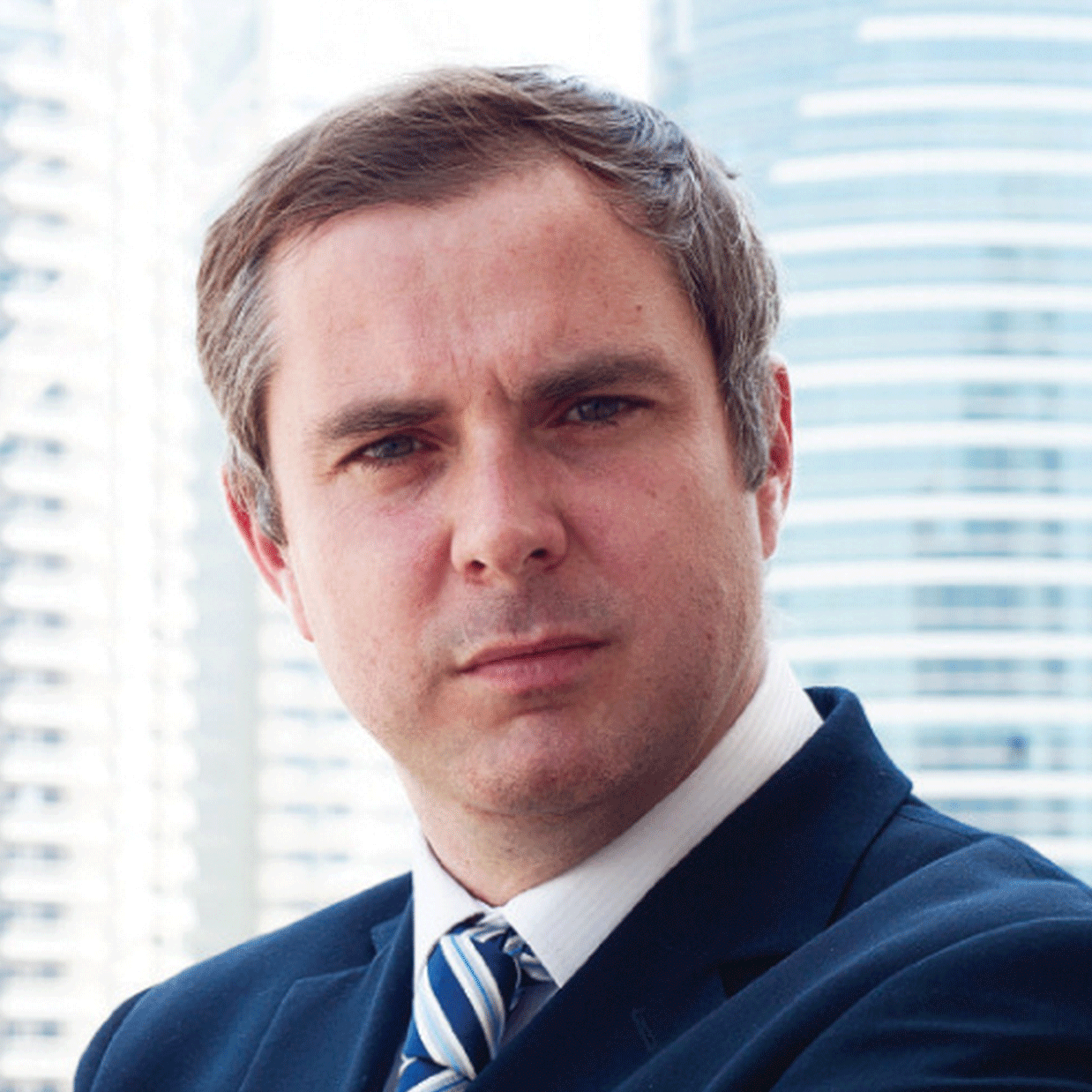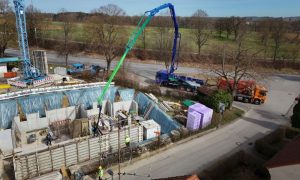The tracks to your tears
When an engine fails or a tyre bursts, contractors and plant managers are relying more and more on their dealer partners to stay up and running.

When an engine fails or a tyre bursts, contractors and plant managers are relying more and more on their dealer partners to stay up and running.
With the nearest workshop frequently hundreds of kilometres away servicing and maintenance is often required on-site. The delivery of spare parts – promised in under 24 hours in other parts of the world – is also fraught with problems. Dealers struggle to hold onto the same inventory their Western and Asian counterparts can keep in huge reserves or get directly from OEM or OEM approved suppliers within hours.
To overcome these challenges, contractors have traditionally run their own servicing operations on-site or nearby. This had the advantage of speeding up the repair by teams that got to know each machine, including its eccentricities and foibles intimately.
The region’s contractors have often been disparagingly described as being only interested in running their equipment into the ground. There is a perception that persists that they are only interested in price and not a return of investment in the kit – however that is frequently not the case.
In fact, smaller contractors have also preferred to run their own servicing, repair and maintenance operations as they could control the maintenance programmes in the hopes of protecting their investment in machines they can later sell on before re-investing in their plant and fleets.
This has often led to maintenance routines that are more intense and frequent than recommended by the manufacturer.
Those who recall CMME’s visit to Al Falah’s operation on the Fujairah truck road, will no doubt remember owner Abdullah Farhat boast that he prefers to keep engine oil changes on his Cat trucks down to 150 hours not the recommended 250 hours.
However Farhat is increasingly the exception rather than the norm. The global financial downturn has forced many companies to re-assess the value of running their own servicing and maintenance operations.
Workshops and the necessary investment in workers, training, equipment and running costs has made them increasingly expensive. The cut-backs have been slow but relentless, leaving some unable to fully service their fleets even as a recovery takes hold in areas such as the Gulf, which is experience a relatively strong pick-up in activity.
At the same time, dealers, often spurred on by their OEM partners, have sought to fill the gap by expanding their own aftersales operations.
The net result is a trend towards a greater reliance on them to act as a symbiotic and sympathetic partner with contractors.
This comes at a cost of course, but it is one that many are open to when the alternative is investing in real estate.
In many ways after sales has become the key battleground for contractor attention. That’s why you see a company like LiuGong (read CMME’s interview with York Liany on Page 16) invest so heavily into its Jebel Ali distribution centre or why when Roots Group decided it needed to ramp up Case’s presence in the market it opened one of the biggest facilities in the world in Jeddah.
“We’re pleased we’ve got it,” Roots CEO Ousama Fansa explained. “Obviously the parts and services will be run out of Jeddah. For Case it is one of, if not the largest, in the world. It is on 15,000 sqm of land and with a built up area of 5,000 sqm. And this is just for the Saudi market. From there we can supply spare parts within 24 hours. Everything does not have to go through our workshop and warehouse for this busuiness.“
Talking of scale, this year saw Caterpillar open its massive 47,030m² spare parts hub, promising to aid its own dealer’s attempts to maintain pace with the growing competition.
“The expansion of the Cat Parts distribution network is another way Caterpillar is delivering on our commitment to providing unmatched parts availability to customers and dealers around the world,” explained Stu Levenick, Caterpillar group president for Customer and Dealer Support. “The grand opening is a great way to reaffirm our promise to providing the right part, at the right place, at the right time for our customers.”
“We are very pleased to be adding the Middle-East Distribution Center to our industry leading global parts network,” said Steve Larson, Caterpillar vice president with responsibility for parts distribution and logistics, and president of Caterpillar Logistics, Inc. “With the outstanding product support capability of Cat dealers in the region and the improved parts availability this operation will deliver, we will continue providing customers an unmatched level of after-sale support.”
The Middle East Distribution Center fits snuggly into Caterpillar’s storage and supply capacity for the Europe, Africa and Middle East (EAME) network, adding to existing Distribution Centers in Grimbergen, Johannesburg and Moscow.
“We are excited about our overall growth opportunities in the Middle East and Africa markets and, along with our dealers, are investing in expanding our facilities,” said Nigel Lewis, Caterpillar vice president with responsibility for EAME Distribution.
“The Middle East Distribution Center is the first of a number of investments we are making in the region that will allow us to improve parts and components availability and the delivery process to our dealers and customers.”
Zahid Tractor’s EVP Fahad Y Zahid says that Caterpillar’s new Middle East Distribution Centre in the UAE will help it to improve its operation in Saudi Arabia.
The new facility was officially opened in the Jebel Ali Free Zone at the end of March and has been built to assist the strengthening of Caterpillar’s after-market parts support network in the region.
“Caterpillar’s new MEDC signifies an important investment in the region and a dedication to the perennial progress of the Middle East economy,” said Zahid. “The enhanced logistics and service offering the new MEDC will enable us to offer will not only benefit our direct clients, but it will also serve to improve efficiency of operations across a variety of sectors in Saudi Arabia.
“Our partnership with Caterpillar has played an integral and vital role in the development of the Kingdom’s construction industry for more than 60 years. We are proud to continue this role, helping to facilitate our country’s substantial current and future projects in commercial real estate development, industrial expansion and the infrastructure sector.”
Volvo’s partner in the UAE and Saudi Arabia FAMCO’s storied growth in the GCC region is being powered by its parts and distribution network. Like many other companies, its engine is based in Jebel Ali. Mark Johnson, general manager –
Aftersales, explains why the landscape of what happens after the sale of a machine is changing.
“Over the last few years machinery sales have been very volatile but in terms of the aftermarket it’s much more stable,” he says. “The peaks and troughs have been nowhere near on the scale of equipment sales. Of course when the downturn happened in 2008/2009, a lot of machines were exported, stood down, moth-balled and so business did suffer slightly. But we’re now back up to and above the peak levels of 2008. The aftersales business is exceeding those levels.”
He says that although construction activity has picked up, the aftersales market is being driven by greater reliance on companies like Famco to support contractors and other customers.
“One of the trends that we saw, which became an opportunity for us, was during the crisis a lot of people closed their workshops down, made technicians redundant. And of course we don’t do that,” he continues. “We didn’t shut any of our workshops down and didn’t get rid of any of our aftersales staff. So we’re in a position to pick-up on that business.
“When you look at the cost of operating a workshop as to outsourcing it to the right sorts of people, it’s not that different. There’s not the capital investment in equipment or premises, service vans; we’ve got all that. We can offer that service over night (in the UAE) with no capital investment from the customer.”
As he explains, he reels out a list of what that investment could entail for a construction company or contractor: “You’re talking 100,000 dirhams for a pick-up. The same again for tools and equipment. It’s a big investment.”
Ultimately, he says, contractors need to avoid the risk that level of investments requires; especially in the current climate. He also suggests that improving its aftersales offering has helped FAMCO to weather some of rougher patches of economic climate in the past few years.
“We’ve got the scale,” he comments. “We don’t rely on any one product – our broad range protects from some of the spikes in the market. Also the amount of aftersales business we carry out protects from spikes in unit sales. We have a very healthy absorption rate in the aftermarket. Of course we feel the effect of any upturns or downturns in the market but because of the diversity we’ve got, we’re not reliant on any one particular segment.
“(The aftermarket) is not where the money is, it’s where you offer something different in the sales process; the importance you are going to give to the machine, operator and customer as part of the overall solution,” he comments. “Once the machine has been sold the touch points are with the aftersales team, whether that’s maintenance, servicing or repairs. Performance issues normally come back to the aftersales guys.”
Finally he issues advice to buyers: “The more time you invest in getting the right machine for the right application, the more it delivers after sale.”










